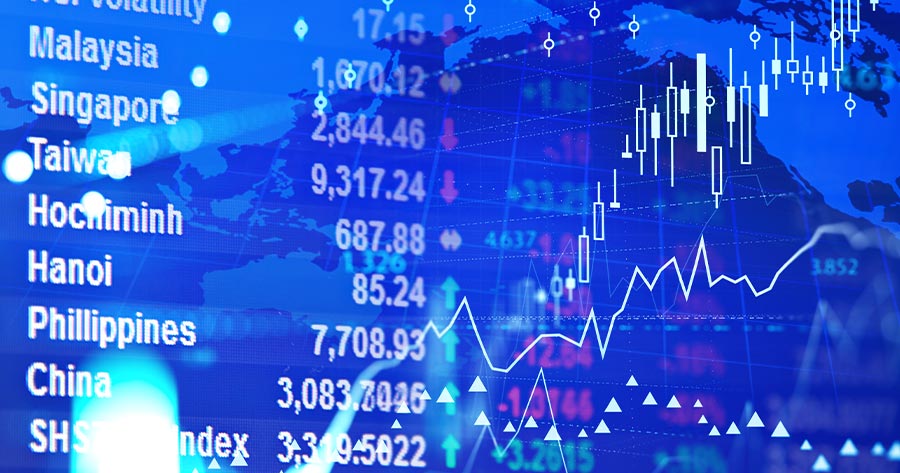On Thursday morning (8 Feb, 9:35 AM, GMT+7, Bangkok time), most major indices in Asia Pacific increased following the assessment from investors on China’s inflation data for January.
China’s Consumer Price Index for January dropped by 0.8% YoY, but rose by 0.3% MoM. Both numbers missed expectations from economists polled by Reuters, which were 0.5% and 0.4%, respectively.
China’s Producer Price Index fell 2.5% in January from the same period last year, according to the announcement from the National Bureau of Statistics on Thursday. The data was slightly better than expectations for a 2.6% decline.
Meanwhile, investors also awaited an interest rate decision from the Reserve Bank of India, which was expected to stay at 6.5%.
Japan’s NIKKEI rose by 1.5% to 36,660.98. South Korea’s KOSPI grew 0.61% to 2,625.37, and Australia’s ASX 200 gained 0.57% to 7,659.3.
As for stocks in China, Shanghai’s SSEC edged up by 1.04% to 2,859.04. Shenzhen’s SZI jumped by 2.97% to 8,966.86, while Hong Kong’s HSI slid by 0.13% to 16,060.69.
Meanwhile, the US stocks market edged higher on Wednesday as the Dow Jones Industrial Average (DJIA) increased by 0.4% to 38,677.36. NASDAQ climbed by 0.95% to 15,756.64, and S&P 500 rose by 0.82% to 4,995.06. VIX dropped by 1.76% to 12.83.
As for commodities, oil prices settled higher on Wednesday as the US fuel stocks fell more than expectations, while tensions in the Middle East also rose. Brent climbed 62 cents or 0.79% to $79.21 per barrel, and the West Texas Intermediate (WTI) grew 55 cents or 0.75% to $73.86 a barrel.
This morning, Brent surged 26 cents or 0.33% to $79.47 a barrel, and WTI edged up 24 cents or 0.32% to $74.1 per barrel.
Meanwhile, gold futures rose by 0.02% to $2,052.1 per Troy ounce.



